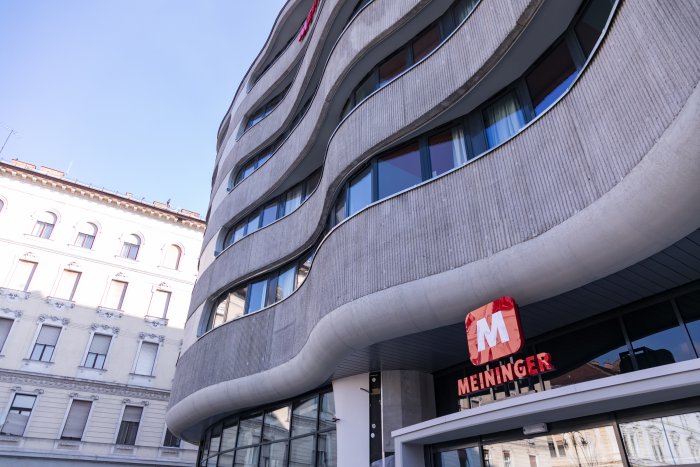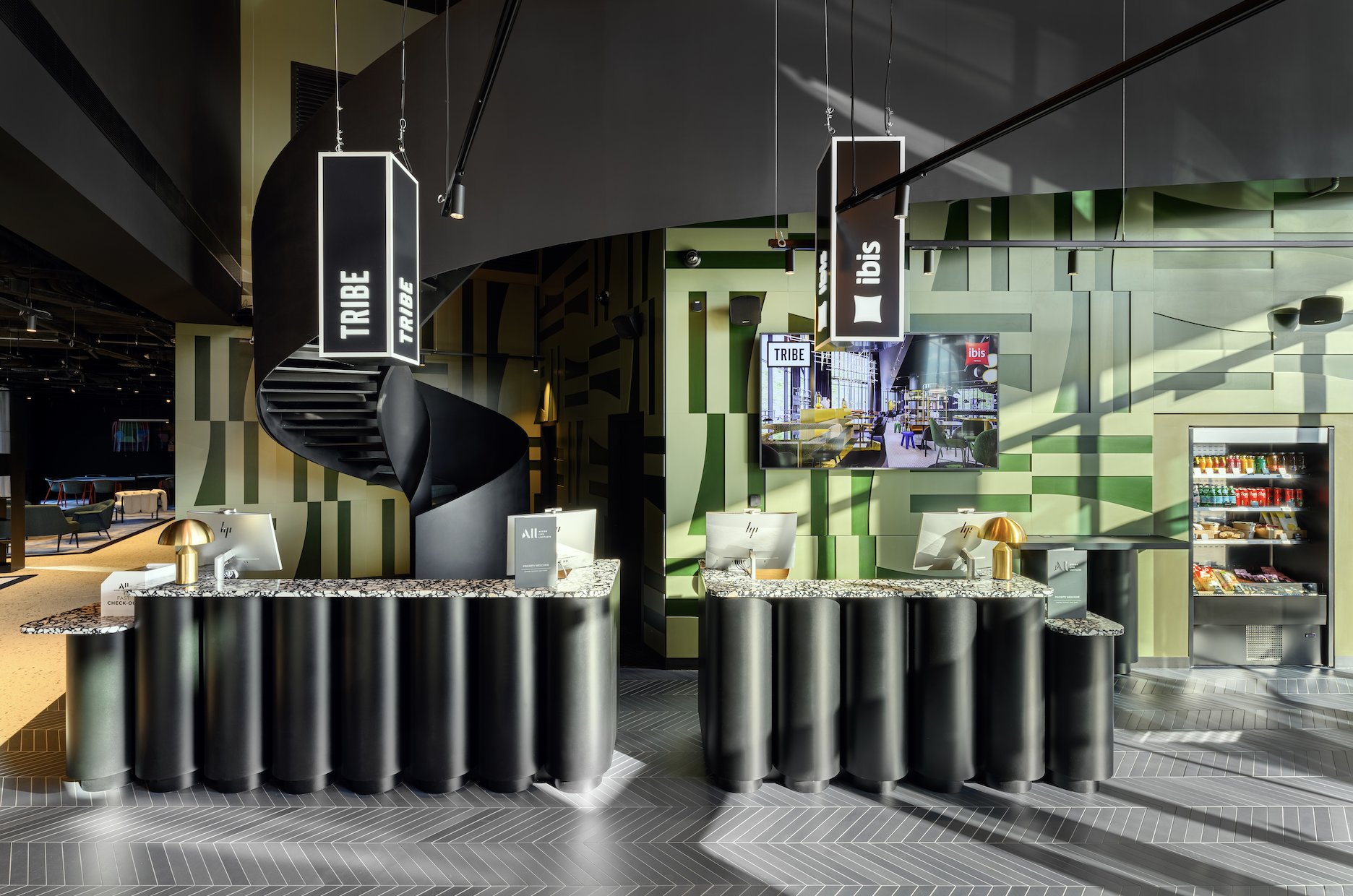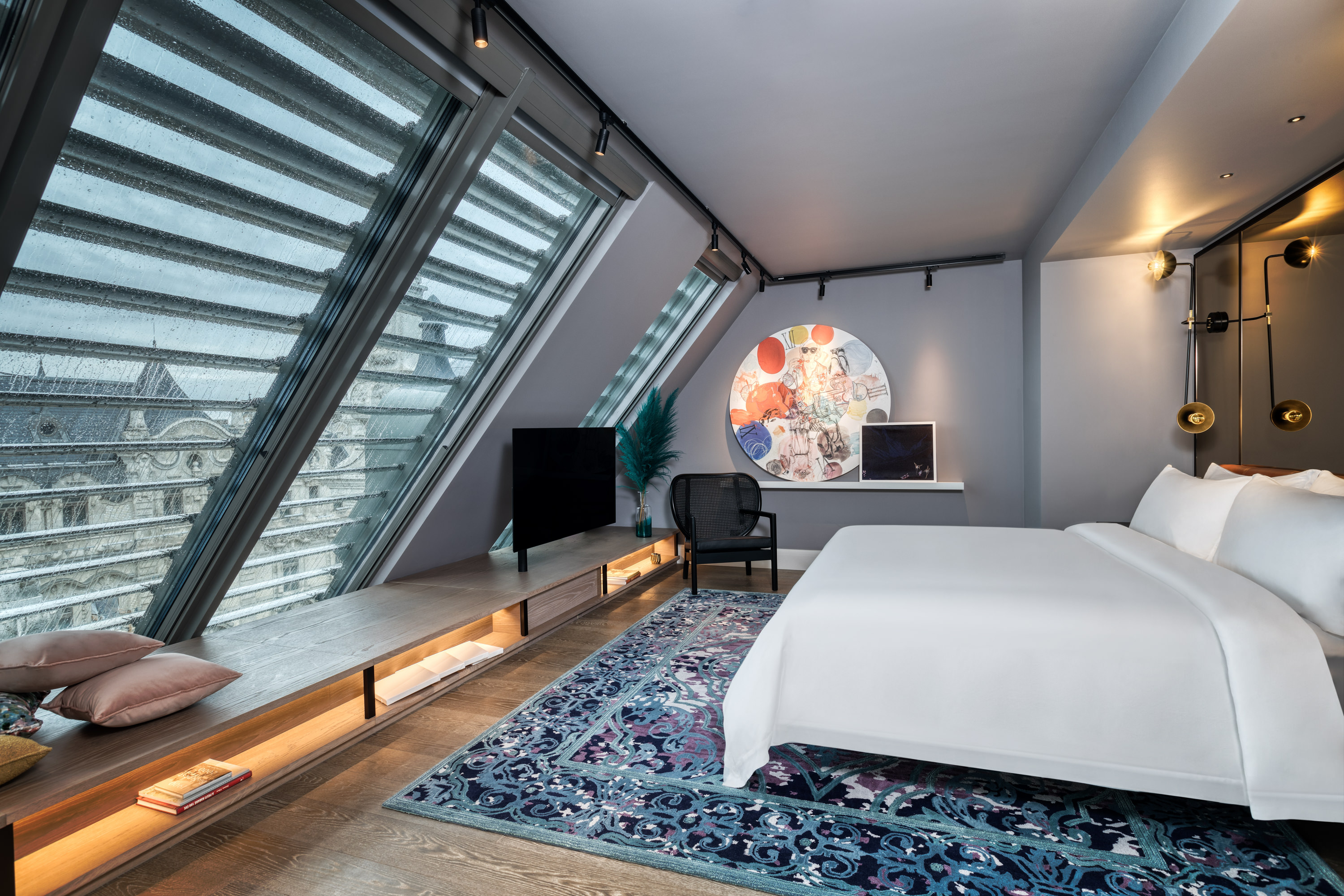Strong Guest Demand Attracting Hotel Developers and Investors

Tourist numbers to Hungary are continuing to rise with 5.5 million visitors to Hungary in the first half of last year. Overall there growth of around 3% across the CEE region for 2018, and this is expected to continue. Developers, investors and operators all, therefore, see the potential for hotel development.
Meininger Hotel in Budapest.
CBRE has traced a pipeline of around 18 three-five-star hotels under construction in Hungary, a clear majority of which are in Budapest. However due to the complex development process and labor issues, delivery dates are very difficult to estimate as many completions are slipping.
Despite this the hotel sector in Hungary, CEE is attracting an increasing number of development projects according to the third HOTCO Hotel Investment Platform CEE & Caucasus.
The program of the two-day event at the Kempinski Hotel Corvinus in Budapest had the central theme of “How to Maximize Return on Investment throughout the Hotel Development and Ownership Cycle”.
The conference, attended by some 350 delegates (drawn from a cross section of consultants, developers, hotel managers, architects, brand managers, investors and financers), followed the process of hotel development: from site assessment, feasibility through concept design, branding, financing, construction, staffing, operation and eventual exit.
The CEE hotel markets are no longer the Cinderella to the more established office, retail and industrial market sectors. Rolf W. Schmidt, founder and general manager of TopHotelProjects, has traced 242 hotel projects representing 49,600 rooms in 19 countries. As many as 88 projects are due to deliver 13,684 rooms in 2019, with a further 58 projects planned to complete in 2020.
Austria is the leading CEE hotel development market with 68 projects, followed by Poland with 53 and Croatia with 25. Hungary and Czech Republic are fourth and fifth in the region, both with ten hotel development projects. An interesting comparison reflecting the development potential in the markets is that Germany alone has 373 projects,with 129 hotel openings scheduled for this year.

High-end Market
In the next scheduled delivery at the top end of the Budapest hotel market, the Hungary-based, Jordanian-owned hospitality developer Mellow Mood is due to complete the long-awaited, 110-guest room and suite Párisi Udvar Hotel in the historic center of Budapest. The complex has been designed by Archikon and a franchise agreement has been reached with the Hyatt Unbound Collection.
The Art Deco Párizsi Udvar building dates back to the 19th century. The project has been under development for several years, making it a perfect example of the difficulties associated with the redevelopment of a historic, listed building in the heritage protected center of the Hungarian capital. However, the large number of historic buildings in key central locations does provide the opportunity for the redevelopment of boutique hotels.
In the medium level of the Budapest market, the Hungarian Bedori Investment has delivered 184 three-star rooms at the 6,500 sqm Meininger Hotel Budapest in Csarnok tér, directly opposite to the Nagy Csarnok food market. The hotel will be operated by Meininger Hotels based on a 20-year lease, its first CEE project, the development is seen as the first hostel-hotel complex in Budapest aimed at urban travelers. The complex will open in March.
Also in the mid-range segment of the hotel market, Deutsche Hospitality in conjunction with the B&L Group has acquired construction permits for the 300-room and six conference room, 16,000 sqm InterCity Hotel Budapest, its first CEE InterCity Hotel, at Keleti pályaudvar (Eastern Railway Station).
The company has a policy of developing the brand at what it sees as key train and airport locations, and the Budapest project is scheduled to complete in 2020. A contract with DVM Group has been agreed for the design and construction management of the development.
“It is exciting to see the evolution of the CEE hotel market with a growing number of sophisticated investors and the arrival of new brands tailoring their concepts to the needs of new generations of travelers (affordable life-style hotels, soft-brands, new generation of hostels and innovative serviced-apartments concepts),” Bořivoj Vokřínek, head of Hospitality Research, EMEA at Cushman & Wakefield, told the Budapest Business Journal when asked to comment on the latest developments.
“The relatively low brand penetration across the region provides space for expansion of innovative products and therefore presents a tremendous opportunity for the CEE hospitality market to propel itself into a leading position as the most progressive market in Europe. Hotels are currently moving from alternative to mainstream investments as investors get increasingly comfortable with the CEE becoming a maturing hotel market,” Vokřínek added.
Limited Availability
According to Marius Gomola, managing director of Horwath HTL Hungary and HOTCO Hotel Investment Platform CEE & Caucasus founder, there were 520 hotel investment transactions between 2009-2018.
“The major problem with the development of the hotel investment market is the limited availability of investment grade stock to meet the growing needs of investors,” he commented.
Despite this low availability of investment grade assets, established European investors such as Deka and Invesco have become increasingly active in the hotel sector to the background of growing tourism visits and concerns regarding the retail sector.
“We are core investors and it is not too easy to find the right assets in CEE of EUR 30-35 million upwards; we concentrate on stable jurisdictions such as Poland, Czech, Hungary and the Baltics,” commented Frank Hildwein, head of hotel acquisition and sales at Deka Immobilien.
David Kellett, senior director of hotel transactions at Invesco, sees the best options in assets of EUR 50-100 million plus, of which, again, there is limited availability. The company is concentrating on the key CEE cities of Budapest, Prague and Warsaw.
With regard to management strategies, the pros and cons of the choice of a management contract, lease, franchise or hybrid, by a developer depends on the type of business and location and the extent to which a developer wishes to be hands on in a business according to Arik Ramot, owner, lawyer and investment banker at Ramot & Co Investment House. It is seen as more difficult to source debt finance the further a developer is from the management of a project.
The Hungarian developer Redwood Real Estate Holding has agreed a management contract with Hard Rock International for the operation of the 136-room Hard Rock Hotel Budapest in Nagymező utca, due to be completed in the fourth quarter of the year. The “life-style” hotel and Hard Rock Cafe reflects the growing sophistication of the market, and the need for different models of hotel development.
SUPPORT THE BUDAPEST BUSINESS JOURNAL
Producing journalism that is worthy of the name is a costly business. For 27 years, the publishers, editors and reporters of the Budapest Business Journal have striven to bring you business news that works, information that you can trust, that is factual, accurate and presented without fear or favor.
Newspaper organizations across the globe have struggled to find a business model that allows them to continue to excel, without compromising their ability to perform. Most recently, some have experimented with the idea of involving their most important stakeholders, their readers.
We would like to offer that same opportunity to our readers. We would like to invite you to help us deliver the quality business journalism you require. Hit our Support the BBJ button and you can choose the how much and how often you send us your contributions.







